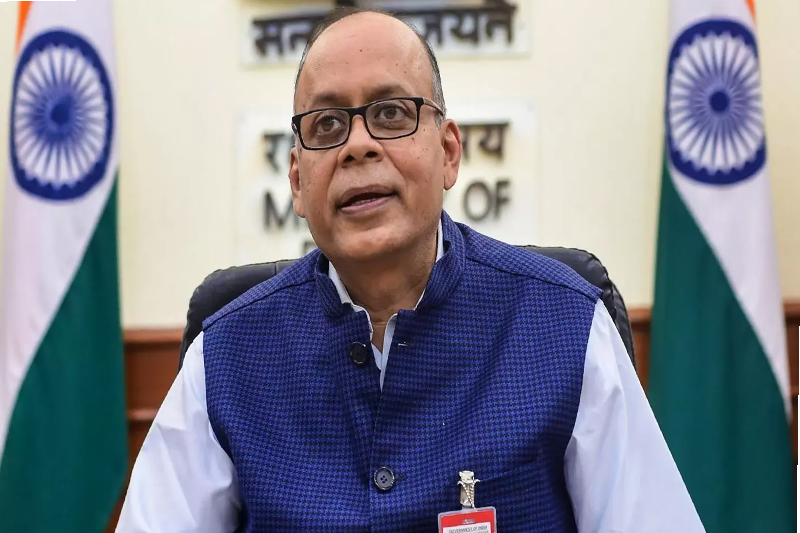
Why UPSC Does Not Share Answer Keys Immediately: Key Insights from Chairman Dr Ajay Kumar’s First Live Q&A
The Union Public Service Commission (UPSC) began its centenary year with an unprecedented step — a live Q&A session with civil services aspirants, hosted by Chairman Dr Ajay Kumar on October 1, 2025. This landmark event opened direct communication between the Commission and candidates, addressing their most pressing questions on eligibility, evaluation, reforms, transparency, and fairness in India’s most competitive examination system.
Dr Kumar’s candid responses shed light on long-standing debates, clarified common misconceptions, and highlighted reforms that are reshaping UPSC.
Why Answer Keys and OMR Sheets Are Not Released Immediately
One of the first questions raised was about the non-disclosure of answer keys and OMR sheets immediately after the prelims, unlike in some state-level examinations.
Dr Kumar explained that after the prelims, UPSC invites inputs from candidates through an online portal. Thousands of suggestions are carefully reviewed by independent academic experts. If discrepancies are found, necessary corrections are made before finalising the answer keys.
The final answer keys are then released before the next exam cycle, ensuring fairness without compromising accuracy. As for OMR sheets, candidates can obtain them, and question papers are already available. However, the issue of immediate disclosure is currently sub-judice in the Supreme Court, and UPSC will abide by the court’s final verdict.
Eligibility Cut-Off Date: Why August 1?
Another common doubt among aspirants is the eligibility cut-off date. Why does UPSC follow August 1 instead of January 1, like some state commissions?
Dr Kumar clarified that exams held in the first half of the year follow January 1, while those in the second half follow August 1. This system has been consistent since the 1960s and ensures that students graduating in May-June do not lose a year of eligibility.
Thus, the August 1 cut-off prevents unnecessary gaps and provides fairness to fresh graduates.
CSAT: A Level Playing Field
Many aspirants perceive the Civil Services Aptitude Test (CSAT) as biased toward engineering or quantitative backgrounds. Dr Kumar dismissed this notion, emphasising that CSAT is only a qualifying paper with a 33% requirement and does not count toward merit.
The paper balances three sections: comprehension, quantitative ability, and logical reasoning. Each aspirant can clear it using their strengths. The objective is to ensure that future civil servants have basic comprehension, logical, and problem-solving skills necessary for governance.
Optional Papers in Mains: Why They Still Matter
On the question of relevance, Dr Kumar confirmed that optional subjects remain an integral part of mains. With two optional papers forming 2/7th of the total written score, they test a candidate’s depth of knowledge and analytical ability in a chosen subject.
Optional subjects offer flexibility, allowing candidates to demonstrate expertise beyond the General Studies (GS) papers. At present, UPSC has no plans to remove them.
Cut-Offs, Results, and Delays
Aspirants often express frustration that prelims results and cut-offs are delayed, leaving little room for course correction. Dr Kumar clarified that cut-offs and final keys are released before the next exam cycle to guide preparation. The issue of earlier release, however, is also under consideration in the Supreme Court.
No Changes in Age Limits or Attempts
Rumours about reducing age limits or number of attempts were firmly dismissed. Currently, the upper age is 32 years for general candidates, with relaxations up to 37 years and unlimited attempts for SC/ST candidates, and 10 years additional relaxation for PwD aspirants. These relaxations were revised in 2014 and remain balanced.
Dr Kumar assured aspirants that no such proposals for reduction exist.
Coaching, Bias, and Rural Representation
A recurring concern is whether UPSC favours urban candidates with access to coaching. Dr Kumar responded with data: 80–90% of successful candidates now come from tier-2, tier-3 towns, and rural areas. UPSC ensures complete anonymity in evaluation, eliminating any scope for bias.
While coaching dependence exists across exams like JEE and NEET, success in UPSC largely depends on self-study, consistency, and discipline.
Technology, Reforms, and Fairness
Highlighting reforms, Dr Kumar outlined several digital measures, including:
- Aadhaar-linked verification and face authentication to prevent impersonation.
- Grievance redressal improvements, with the helpdesk now available year-round instead of only during exam cycles.
- The Pratibha Setu portal, connecting near-miss aspirants with career opportunities in public and private sectors.
He stressed that UPSC’s guiding principle remains inclusivity, fairness, and transparency while adapting to a digital era.
Dealing with Cheating and Malpractice
UPSC maintains a zero-tolerance policy for cheating. Candidates caught using false documents, manipulating age, or engaging in malpractice are barred from exams for at least three years, with FIRs filed in serious cases. Technology is now central to detecting fraud.
Fair Evaluation in Mains and Interviews
UPSC uses multiple levels of review, moderation, and statistical balancing to ensure fairness across subjects in mains evaluation. Dr Kumar reassured candidates that interviews, conducted by senior experts, remain neutral and free of bias regarding background, discipline, or region.
Motivation and Advice from the Chairman
Dr Kumar also shared his personal UPSC journey, recalling his days preparing at IIT Kanpur, choosing service in India over higher studies abroad, and clearing both IAS and Engineering Services. His success, he said, came from curiosity, consistency, time management, and positivity in the face of setbacks.
He advised today’s aspirants to:
- Rely on self-study instead of overdependence on coaching.
- Maintain discipline, perseverance, and confidence.
- Understand that UPSC is one of many pathways, and even those who miss narrowly have opportunities through Pratibha Setu and beyond.
A Transparent Future for UPSC
Concluding the session, Dr Kumar promised that such live Q&As will continue periodically, strengthening trust and transparency between the Commission and candidates.
He reminded aspirants that UPSC is not just an exam, but a platform to harness talent for nation-building. While the civil services remain a prestigious pathway, the journey of preparation itself equips aspirants with lifelong skills to excel in any career.


